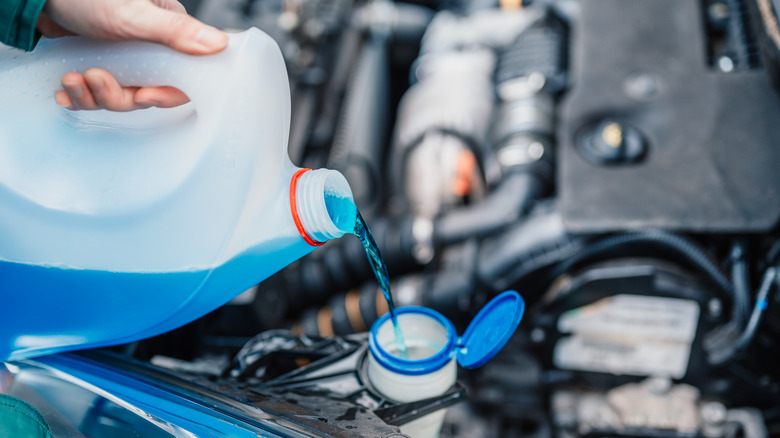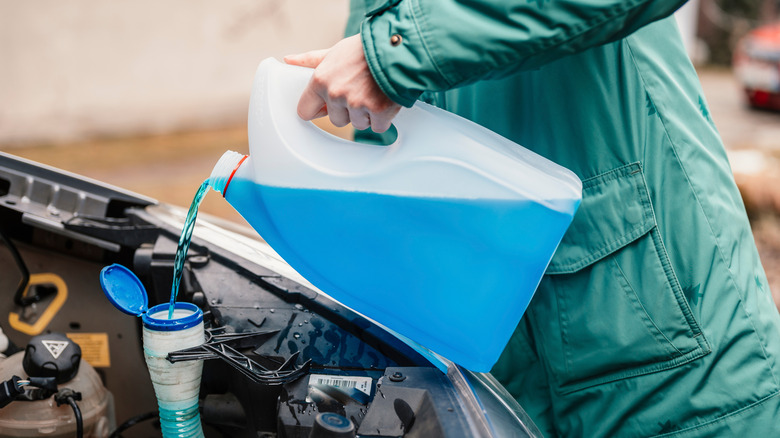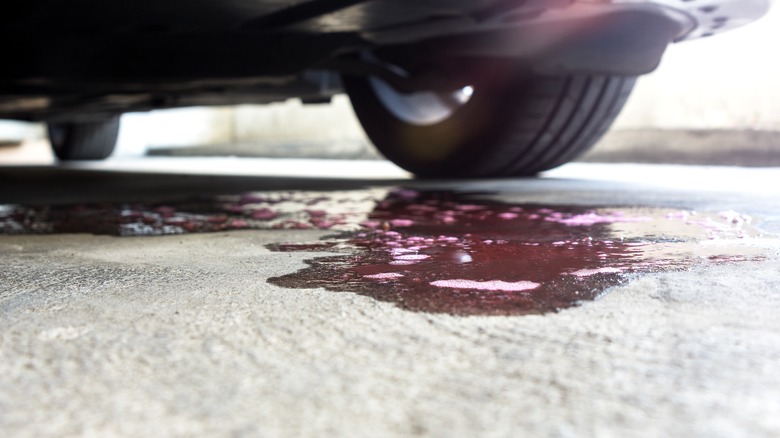The Right Way To Dispose Of Antifreeze
If you own a car, odds are you have a bottle of antifreeze in your garage. Antifreeze is usually a light blue liquid, but sometimes comes in other colors, and is also referred to as an engine coolant, according to Valvoline. Antifreeze is important for helping your car regulate its temperature, especially during extreme hot or cold weather. It is mixed with water and added to your engine's cooling system via the expansion reservoir and should be checked and topped up twice a year.
If you have leftover antifreeze you don't think you'll use, or you have just emptied your car's cooling system, under no circumstances should you pour it down the toilet or drain, outside, or just toss it away in the bottle. As Bob Vila points out, the main ingredient in antifreeze is ethylene glycol, which is toxic to humans, plants, and animals, and while some brands market themselves as non-toxic, that is rarely the whole truth, therefore, you should dispose of all antifreeze with equal caution.
Treat as a hazardous waste
It is recommended to replace your antifreeze every 30,000 to 60,000 miles. Any kind of leftover antifreeze, whether it has been used or not needs to be discarded correctly. When draining the antifreeze from your car, be very careful you don't spill any and immediately transfer it to an old plastic container with a strong seal, advises Bob Vila.
Once the liquid is secured, how should you dispose of it safely? Bob Vila suggests that the first thing to do is call your local hazardous waste disposal facility. If you're unsure where the nearest one is, either do a quick internet search or call your local recycling or garbage disposal service, and they will tell you what to do with the antifreeze. Commonly, you'll be asked to secure and mark the liquid in a specific manner and advised where to take it or when it will be collected.
Clean up spills
If you happened to spill some antifreeze either while draining your car or transferring it, don't panic. Prepare for the mistake beforehand by having an absorbent substance such as cat litter, baking soda, or sand ready, as well as plenty of paper towels, advises Bob Vila. In case of a spill, immediately cover it with the absorbent material, then add plenty of paper towels and let it sit for a few hours.
Once the spill has been soaked up, collect the towels and absorbent material and place them in a garbage bag. It is a good idea to wear gloves for this so the antifreeze doesn't irritate your skin. You can throw these out with your normal trash if you know it's safe from children, domestic pets, and wild animals. If not, then you will need to again contact your local hazardous waste facility. Thoroughly clean any residue from the floor with soap, hot water, and a sponge.


